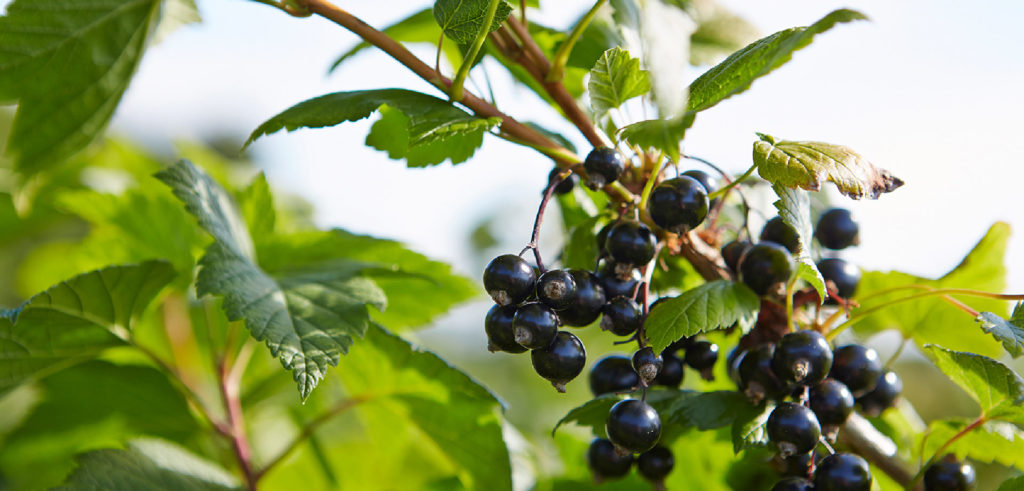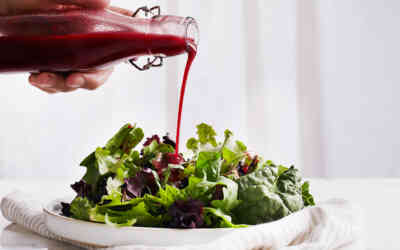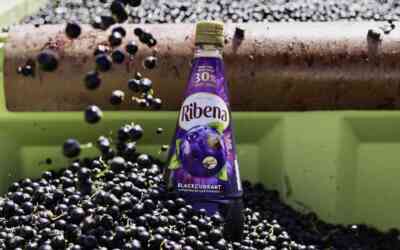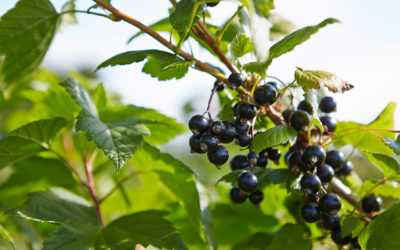Why do blackcurrants grow so well in the UK?

Last year, our growers harvested a whopping 13,000 tonnes of blackcurrants, mostly to make the blackcurrant cordial all know and love, Ribena! However, have you ever wondered why blackcurrants grow so well in the United Kingdom? Prepaps sometimes unfavourable for most, blackcurrants love the Great British Weather! Continue reading to find out why…
We may complain about the British climate, but our Great British superfruit certainly isn’t! With cold winters and warm summers, the UK has the ideal conditions to grow Blackcurrants. Blackcurrants have grown well in the UK for over 500 years, and many Blackcurrant Foundation growers have grown blackcurrants for generations, managing 2,000 hectares of blackcurrant fields across the British Isles. This tiny berry is part of British History, mainly due to the UK having perfect growing conditions for these purple powerhouses.
During the winter, cold spells ensure that blackcurrants flower at the right time for optimum pollination. They require approximately 2,000 cold hours (below 7c) before they start to grow buds in the spring. This means it reduces the risk of frost damage to new buds and ensures that buds open rapidly in the spring. This also means they flower when there are lots of essential pollinators around – mainly bees but also butterflies, moths and other insects too. Therefore, a frosty winter followed by rising temperatures in spring and summer is essential for a healthy crop of blackcurrants come harvest in July-August when the berries are at their sweetest.
However, with rising temperatures during the winter, blackcurrants have a shorter and milder ‘chill time’ which will affect the harvest. The James Hutton Institute has discovered that milder winters may cause blackcurrant crops to flower later in the year, produce less fruit, and over repeated years, have a reduced plant lifespan.
In light of this, a new climate-resistant variety has been developed- ‘Ben Lawes’ alongside Ribena’s brand owner, Lucozade Ribena Suntory and the James Hutton Institute (the leading agricultural research centre for soft fruits). This new variety has taken 20 years to develop and last year (2020) was the first successful harvest! We’re thrilled that our dedication to keep the Great British Blackcurrant thriving in our ever-changing climate has paid off. The development of this new blackcurrant variety means we will be able to protect the future of the crop and help secure UK blackcurrant growers’ livelihoods.
YOU MAY ALSO WANT TO READ
Christmas Gifting with Blackcurrants
YOU MAY ALSO WANT TO READ Christmas is a time to exchange gifts as we express our love and appreciation for others, so why not give a gift this Christmas which is made with love, joy and a whole load of blackcurrants? Read on for some inspirations for a berry merry...
It’s all about Ribena!
If you think about blackcurrants, you’ll instantly think, Ribena. It’s not surprising, considering that 90% of the UK’s crop goes into that distinctive, ‘Ribenary’ taste. Where did it all begin? Ribena was invented in 1938. The first drink of its kind,...
Enjoy summer with blackcurrants…
Make the most of blackcurrant season this summer Great British Summertime is blackcurrant season. It’s short and sweet, so make sure you enjoy everyone’s favourite purple berries while you can. Here are some of our favourite ways to incorporate blackcurrants...




